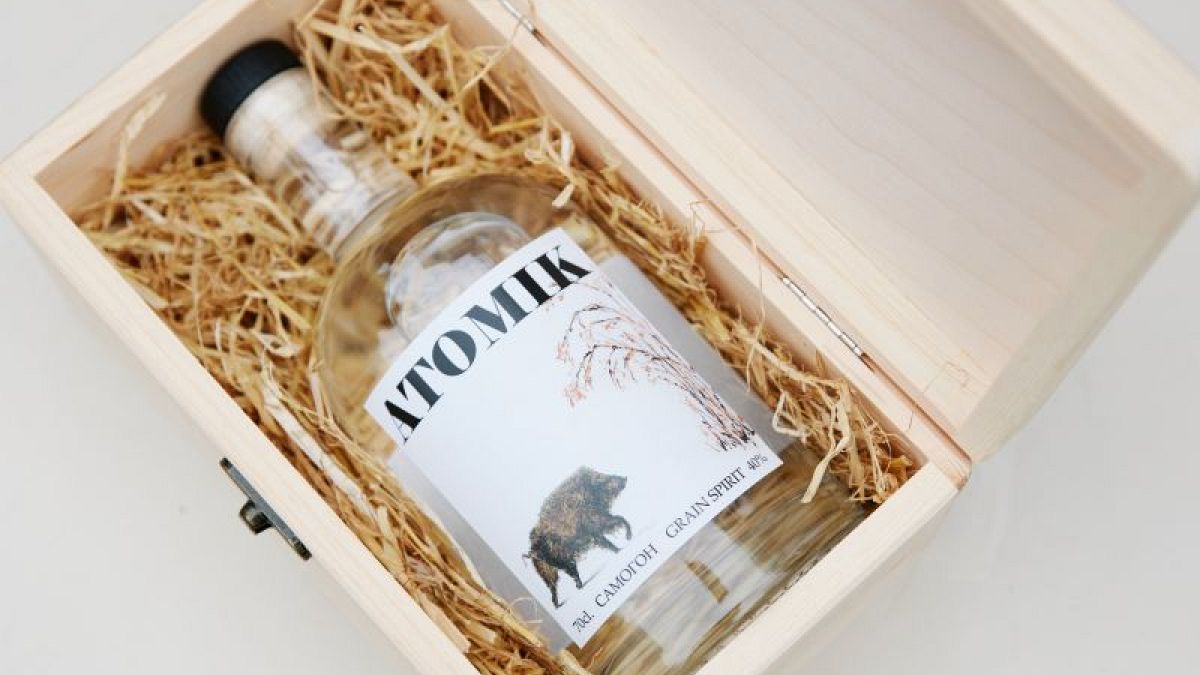Vodka made with grain and water from the Chernobyl exclusion zone has been described by one of its creators as “the most important bottle of spirit in the world.”
Vodka made with grain and water from the Chernobyl exclusion zone has been described by one of its creators as “the most important bottle of spirit in the world”.
Following the disaster at the Chernobyl Nuclear Power Plant disaster in 1986 — the worst nuclear accident in history — an exclusion zone of 4,300 square kilometres was implemented around the building.
As many as 335,000 people were forced to leave the area by the Soviet Union.
The accident left much of the surrounding area in Ukraine abandoned due to high levels of radiation. Now, a team of scientists has distilled a vodka, branded ATOMIK, which they hope could help spark economic revitalisation.
“It (production of the vodka) could help the economic recovery of communities living in and around the abandoned areas,” said Professor Jim Smith from the University of Portsmouth who is part of the team working on the project.
“Many thousands of people are still living in the Zone of Obligatory Resettlement where new investment and use of agricultural land is still forbidden.”
While some radioactivity was found in the grain used, the spirit itself is free from any abnormal radiation levels, thanks to the distillation process.
The distilled alcohol is diluted with mineral water from an aquifer in Chernobyl town, 10km south of the reactor, and this water is free from contamination.
Professor Smith and his colleagues in the UK and Ukraine conducted a three-year research project into the transfer of radioactivity to crops grown in the Chernobyl exclusion zone.
They have so far only produced one bottle of vodka, but now want to ramp up production and give 75% of the profits back to the affected community.
Professor Smith said: "33 years on, many abandoned areas could now be used to grow crops safely without the need for distillation."
“We aim to make a high-value product to support the economic development of areas outside the main exclusion zone where radiation isn’t now a significant health risk.”
The research has been welcomed by the State Agency of Ukraine for Exclusion Zone Management, although the First Deputy Head, Oleg Nasvit, quibbled over whether ATOMIK should be called vodka.
“I’d call this a high-quality moonshine,” he said. “It isn’t typical of a more highly purified vodka, but has the flavour of the grain from our original Ukrainian distillation methods – I like it.”
The artisanal vodka is one of the results of a project to find out when and if it is safe to start using some of the abandoned land in the zone for growing crops.
